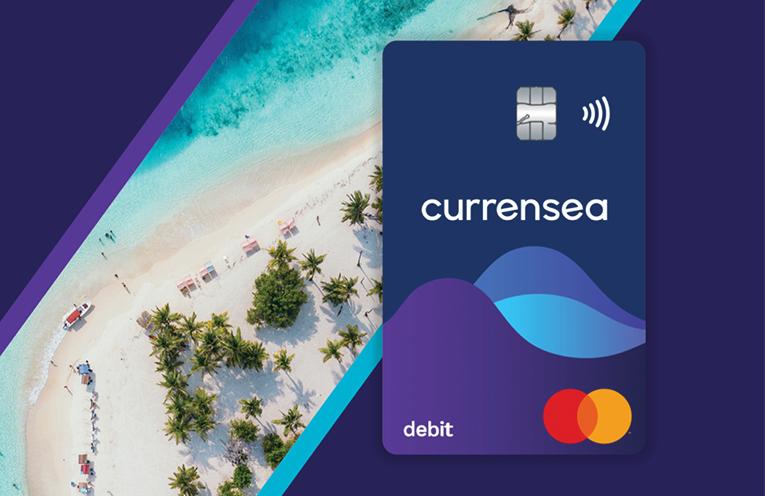Spending on a card while holidaying abroad can sometimes seem like a guessing game. How much will I be charged for a transaction? And how do I know if there are enough funds in my account for a purchase?
Fees levied by many traditional banks for overseas card transactions are typically around 3 to 4% above the foreign exchange rate. Add to this the card scheme’s fee of around 0.5% and those foreign holiday bargains can start to look pricy.
Thankfully, today’s travellers have an alternative spending option in the form of Currensea, a simple but effective fintech proposition on Mastercard rails that can be used abroad for a fraction of the cost – 0.5%. On top of that, Currensea users are able to offset some of the impact of their holiday by diverting some or all of their forex savings to an environmental charity.
One of these is Onetreeplanted.org which, as its name suggests, plants trees around the world as part of global efforts to restore degraded land. A new tree is planted for every 75p donated. Alternatively, customers have the option of supporting Plastic Bank, which recovers and recycles ocean-bound plastic. Each pound Currensea users send to Plastic Bank removes 100 bottles from the seas.
So how does Currensea work from a transaction perspective?
Essentially, the Currensea card is linked to a user’s consumer retail or business banking debit card, taking advantage of open banking legislation. Each time a transaction is made, Currensea checks the source account for sufficient funds in real time and then authorises payment. It then makes a direct debit request to that account, applying a 0.5% fee for Essential product customers or no fee in the case of Premium or Elite customers.
The business was founded by James Lynn and Craig Goulding. Craig is a double first Oxford physics graduate who took an unlikely route into the world of fintech via a career in missile tracking systems. James is an accomplished payments entrepreneur with careers with Barclays and Credit Agricole under his belt. And while Craig is the mastermind behind the technology, James brings invaluable foreign exchange knowledge to the table.
The two main motivating factors for Currensea, according to James, have been the tendency among travellers to continue using a debit card while abroad and paying bank fees or alternatively opting for a prepaid card that requires users to transfer money across and keep careful track of the balance.
“With Currensea, that is all eliminated and people still experience the convenience factor that comes with using your main bank account. It means people no longer have to put up with the hassle of a prepaid card being declined because there are insufficient funds or those embarrassing moments of foraging around desperately trying to top up a card. Nor do they have to worry about how to get the funds off a card when they return home,” he said.
Currensea customers also have access to a dashboard that allows them to monitor spending in real time, so they know how much will be coming out of their source bank account by direct debit. Counterintuitively, according to James, traditional banks see Currensea as an added value partner rather than a threat.
“It’s true that banks might lose a bit of money on forex because of us but in actual fact by helping customers to save money while travelling we give them a solid reason to stay loyal rather than switch to a competitor. People trust and understand the direct debit system, so it really works from a customer confidence perspective. Because of this, banks see us as another layer enhancing their offering rather than a rival eating into margins,” he said.
With banks on board and customers benefiting from cheaper transactions, where might this business go next in terms of innovation?
One area of development that is being looked at according to James are sub-accounts for businesses. At the moment, individual cards are proving popular with SMEs but James can see a role for multiple cards with larger corporate customers. The business may also expand its Environmental, Social and Governance offering beyond tree planting and plastic waste recovery.
“But for now, we want to promote travel – we want our customers to go out there and really enjoy the world, explore different cultures, and have a fun time. But at the same time, we encourage them to do the right thing. With Currensea that is possible and it’s really simple,” James said.
As Covid restrictions lift and people start thinking about visiting foreign countries again, many will be reassured to know that modern card programme innovation is helping travellers to save money and lessen their impact on the natural world.
Marqeta regularly engages with companies in the payments ecosystem to learn more about the new approaches they are bringing to solving challenges related to financial services and money movement in general.
Learn more from our interviews with:
* The views and opinions of third parties summarized in this blog post do not necessarily reflect the views or opinions of Marqeta.
** Currensea is not a Marqeta customer.

